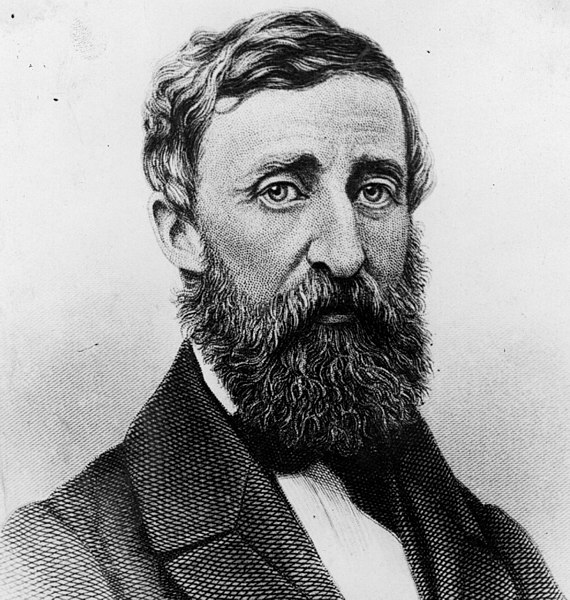Leadership Lessons from Thoreau: Embracing Personal Conviction and Intentional Living

Rediscovering Thoreau’s Philosophy of Leadership
Henry David Thoreau was an American philosopher, naturalist, and writer who lived in the mid-19th century. He is known for his famous book “Walden” which chronicles his two-year stay in a small cabin in the woods, where he lived a simple life, relying on his own labor and the bounty of nature. Thoreau was a thinker who challenged the conventional wisdom of his time and advocated for individualism, self-reliance, and civil disobedience as means of creating social change.
Despite being largely misunderstood during his lifetime, Thoreau’s ideas have had a profound impact on the world, influencing movements such as environmentalism, civil rights, and anti-consumerism. His philosophy of leadership, which emphasizes the importance of personal conviction, vision, and ethics, offers valuable lessons for aspiring leaders today.
In this article, we will explore Thoreau’s life and works, his philosophy of leadership, and the lessons we can learn from his experiences. We will also examine some of the stories and examples of Thoreau’s leadership in practice, and discuss how his ideas are still relevant today.
Through the lens of Thoreau’s life and work, we will gain insight into the qualities and practices that make an effective leader and discover how we can cultivate these qualities in ourselves. By learning from Thoreau’s example, we can develop the courage and conviction to lead with purpose and create positive change in the world.
Early Life and Education
Henry David Thoreau was born in Concord, Massachusetts in 1817, the third of four children. His father was a pencil-maker, and his mother was a homemaker. Thoreau’s childhood was characterized by a love of nature, reading, and writing. He was a curious and independent child who was not interested in formal education.
At the age of 16, Thoreau entered Harvard College, where he studied Greek, Latin, and philosophy. Despite his academic success, Thoreau was critical of the rigid and authoritarian nature of the educational system, and he often clashed with his professors.
After graduating in 1837, Thoreau returned to Concord and took a job teaching at a local school. However, he quickly became disillusioned with the profession, which he saw as a mere factory for producing obedient and conformist citizens.
In 1841, Thoreau met Ralph Waldo Emerson, a prominent essayist and philosopher who would become his mentor and lifelong friend. Emerson introduced Thoreau to the Transcendentalist movement, a philosophical and literary movement that emphasized the importance of individualism, intuition, and spiritual connection with nature.
Under Emerson’s guidance, Thoreau began to develop his own philosophy of life, one that emphasized the importance of self-reliance, simplicity, and the pursuit of truth. Thoreau’s experiences and influences during this period would shape his future works and ideas, including his seminal work, “Walden.”
Thoreau’s early life and education set the stage for his later work as a philosopher, writer, and leader. His unconventional approach to education, his love of nature, and his early mentorship with Emerson all contributed to his unique perspective and his rejection of traditional modes of thinking. These early experiences would lay the foundation for Thoreau’s philosophy of leadership, which emphasizes the importance of individualism, personal growth, and ethical decision-making.
Thoreau’s Philosophy of Leadership
Thoreau’s philosophy of leadership was rooted in his belief in the power of the individual to effect change in society. He believed that true leadership came from within, and that a leader’s most important qualities were personal conviction, vision, and ethics.
One of Thoreau’s central ideas was the importance of self-reliance. He believed that individuals had the power and responsibility to create their own destinies and shape their own lives. This philosophy was reflected in his famous statement, “If a man does not keep pace with his companions, perhaps it is because he hears a different drummer. Let him step to the music which he hears, however measured or far away.”
Thoreau also believed in the importance of living deliberately and purposefully. He argued that many people lived their lives on autopilot, without ever truly examining their actions or motivations. Thoreau believed that living intentionally was essential for personal growth and fulfillment, and that it was only through such intentional living that individuals could make a positive impact on the world.
Nature played a significant role in Thoreau’s philosophy of leadership. He believed that spending time in nature was essential for personal growth and reflection, and that it was through this connection to the natural world that individuals could gain a greater understanding of themselves and their place in the world. Thoreau wrote extensively about his experiences in nature, and his love of the natural world is evident in many of his works.
Another important aspect of Thoreau’s philosophy of leadership was the relationship between ethics and leadership. Thoreau believed that true leadership required a strong moral compass and a commitment to living in accordance with one’s values. He advocated for civil disobedience as a means of standing up for one’s principles, even in the face of opposition from society or authority.
Thoreau’s philosophy of leadership was radical for its time, and it remains relevant today. His emphasis on self-reliance, intentional living, and ethics provides a powerful framework for contemporary leaders seeking to make a positive impact on the world. By embracing Thoreau’s ideas, leaders can cultivate the qualities of conviction, vision, and ethical decision-making that are essential for effective leadership.
Lessons in Leadership from Thoreau’s Life and Works
Thoreau’s life and works offer numerous lessons for aspiring leaders today. His philosophy of leadership, which emphasized individualism, self-reliance, and ethical decision-making, offers a valuable framework for contemporary leaders seeking to make a positive impact on the world. Here are some of the most important lessons we can learn from Thoreau’s life and works:
Importance of personal conviction and vision
Thoreau believed that true leadership began with personal conviction and a clear vision of one’s goals and values. He believed that leaders must be willing to stand up for their principles, even in the face of opposition from society or authority. Thoreau’s example shows us that true leadership requires a strong sense of self and a clear understanding of one’s own values and goals.
The power of simplicity and minimalism
Thoreau’s two-year experiment in simple living at Walden Pond demonstrated the power of minimalism and the benefits of living a simple and deliberate life. Thoreau believed that many people were weighed down by the excesses of modern life, and that simplicity was essential for personal growth and fulfillment. By embracing minimalism and simplicity, leaders can focus their energy on what truly matters and avoid being distracted by the noise and chaos of the modern world.
Embracing failure and setbacks as opportunities for growth
Thoreau experienced many setbacks and failures throughout his life, including the failure of his school, the rejection of his writing by publishers, and his brief stint in jail for refusing to pay taxes. However, Thoreau saw these setbacks as opportunities for growth and learning. He believed that failure was a necessary part of the journey towards success, and that setbacks could be used as stepping stones towards achieving one’s goals. Leaders can learn from Thoreau’s example by embracing failure and seeing setbacks as opportunities for growth and learning.
Courage to challenge societal norms and conventional wisdom
Thoreau was a radical thinker who challenged many of the societal norms and conventional wisdom of his time. He advocated for civil disobedience as a means of standing up for one’s principles and challenging unjust laws and practices. Thoreau’s example shows us that true leadership requires the courage to challenge the status quo and stand up for what is right, even when it is unpopular or difficult.
Leading by example and influencing others through actions
Thoreau believed that true leadership was not about commanding others or holding power over them, but rather about leading by example and influencing others through one’s actions. Thoreau’s example shows us that true leaders are those who inspire others through their actions and embody the values and principles they espouse.
Balancing individualism with social responsibility
Finally, Thoreau believed that true leadership required a balance between individualism and social responsibility. He believed that individuals had the power to shape their own destinies and create positive change in the world, but that they also had a responsibility to use their talents and resources for the greater good. Thoreau’s example shows us that true leadership requires a balance between pursuing one’s own goals and working towards the betterment of society as a whole.
Thoreau’s life and works offer a valuable framework for contemporary leaders seeking to make a positive impact on the world. By embracing Thoreau’s philosophy of leadership, leaders can cultivate the qualities of personal conviction, vision, and ethical decision-making that are essential for effective leadership. By learning from Thoreau’s example, leaders can become the change they wish to see in the world, and create a better future for all.
Stories of Thoreau’s Leadership in Practice
Thoreau’s philosophy of leadership was not just theoretical, but was put into practice through his actions and experiences. Here are some stories and examples of Thoreau’s leadership in practice:
Resistance to paying taxes and advocacy for civil disobedience
One of Thoreau’s most famous acts of civil disobedience was his refusal to pay taxes in protest against the Mexican-American War and the institution of slavery. Thoreau believed that individuals had a duty to disobey unjust laws and practices, even if it meant going against the government. Thoreau’s example of standing up for his principles and advocating for civil disobedience continues to inspire people today.
Living off the grid and experimenting with self-sufficiency
Thoreau’s two-year experiment in simple living at Walden Pond was a testament to his commitment to self-reliance and minimalism. Thoreau built his own cabin, grew his own food, and relied on his own labor to survive. Thoreau’s example of living off the grid and experimenting with self-sufficiency has inspired countless people to explore alternative ways of living and to question the consumerist values of modern society.
Thoreau’s role in the abolitionist movement and fight against slavery
Thoreau was a passionate advocate for the abolition of slavery and was involved in the Underground Railroad, a network of people who helped slaves escape to freedom. Thoreau’s writings and speeches on the topic of slavery were powerful and influential, and helped to shift public opinion towards the abolitionist cause. Thoreau’s example of standing up for what is right and using his platform to effect change continues to inspire people today.
Thoreau’s influence on environmentalism and conservation
Thoreau’s love of nature and his observations of the natural world were the inspiration for many of his writings, including his most famous work, “Walden.” Thoreau believed that the natural world was sacred and that humans had a responsibility to care for it. Thoreau’s example of advocating for environmentalism and conservation has inspired many people to take action to protect the planet and its natural resources.
Personal relationships and mentorship of younger writers and thinkers
Thoreau was known for his strong personal relationships with other writers and thinkers of his time, including Ralph Waldo Emerson and Margaret Fuller. Thoreau mentored many younger writers and thinkers, offering guidance and support to those who shared his passion for literature, philosophy, and social change. Thoreau’s example of fostering personal relationships and mentoring younger generations is a reminder of the importance of community and mentorship in personal growth and leadership.
Thoreau’s leadership in practice serves as a powerful example for contemporary leaders seeking to make a positive impact on the world. By learning from Thoreau’s example, leaders can cultivate the qualities of personal conviction, ethical decision-making, and commitment to social change that are essential for effective leadership. Thoreau’s example shows us that true leadership is not just about words, but about actions, and that by taking action to effect change in the world, we can become the leaders we wish to see.
Relevance of Thoreau’s Leadership Lessons Today
Thoreau’s philosophy of leadership, as well as his life and works, remain relevant today. The challenges facing the world may be different, but the need for effective leadership is more urgent than ever. Here are some ways that Thoreau’s leadership lessons continue to be applicable today:
How Thoreau’s ideas are applicable to modern leadership challenges
Thoreau’s philosophy of leadership emphasizes the importance of personal conviction, vision, and ethical decision-making, all of which are essential for addressing modern leadership challenges. The world today faces numerous complex problems, including climate change, social inequality, and political polarization. Leaders who possess a strong sense of personal conviction and a clear vision for the future are more likely to inspire others and effect positive change. Furthermore, ethical decision-making is crucial for leaders to navigate complex ethical issues and make decisions that are in the best interests of their constituents.
Examples of contemporary leaders who embody Thoreau’s principles
Many contemporary leaders embody Thoreau’s principles of leadership. For example, Malala Yousafzai, the youngest Nobel Peace Prize laureate, is known for her conviction and vision in advocating for girls’ education and women’s rights. Jacinda Ardern, the Prime Minister of New Zealand, is known for her ethical leadership and empathetic approach to governance. Greta Thunberg, the Swedish climate activist, is known for her personal conviction and commitment to environmentalism. These leaders embody Thoreau’s principles of personal conviction, vision, and ethical decision-making, and their examples inspire others to follow in their footsteps.
Lessons from Thoreau’s leadership for aspiring leaders and individuals seeking personal growth
Thoreau’s life and works offer valuable lessons for aspiring leaders and individuals seeking personal growth. Thoreau’s emphasis on self-reliance, intentional living, and ethical decision-making provides a powerful framework for personal growth and leadership development. By embracing Thoreau’s ideas, individuals can cultivate the qualities of personal conviction, vision, and ethical decision-making that are essential for effective leadership. Furthermore, Thoreau’s example of living intentionally and deliberately offers a reminder that personal growth and leadership development require deliberate effort and a commitment to lifelong learning.
Thoreau’s philosophy of leadership remains relevant today, offering a valuable framework for contemporary leaders seeking to make a positive impact on the world. Thoreau’s emphasis on personal conviction, vision, and ethical decision-making, as well as his example of living intentionally and deliberately, provide a powerful model for leadership development and personal growth. By learning from Thoreau’s example, leaders can become more effective in their efforts to create positive change in the world.
Thoreau’s Legacy: Inspiring Individualism and Ethical Leadership
Henry David Thoreau was a leader ahead of his time, whose ideas and philosophy continue to inspire people today. His life and works provide valuable lessons for contemporary leaders seeking to make a positive impact on the world, including the importance of personal conviction, vision, ethical decision-making, simplicity, and minimalism. Thoreau’s example of living intentionally and deliberately offers a reminder that personal growth and leadership development require deliberate effort and a commitment to lifelong learning.
Thoreau’s philosophy of leadership was rooted in his belief in the power of the individual to effect change in society. He believed that true leadership came from within and that a leader’s most important qualities were personal conviction, vision, and ethics. Thoreau believed in the importance of living deliberately and purposefully, and that it was only through intentional living that individuals could make a positive impact on the world.
Thoreau’s love of nature and his observations of the natural world were the inspiration for many of his writings, including his most famous work, “Walden.” Thoreau believed that the natural world was sacred and that humans had a responsibility to care for it. Thoreau’s example of advocating for environmentalism and conservation has inspired many people to take action to protect the planet and its natural resources.
Thoreau’s leadership in practice serves as a powerful example for contemporary leaders seeking to make a positive impact on the world. By learning from Thoreau’s example, leaders can cultivate the qualities of personal conviction, ethical decision-making, and commitment to social change that are essential for effective leadership.
Thoreau’s ideas and philosophy continue to inspire people today, offering a powerful framework for personal growth, leadership development, and social change. By embracing Thoreau’s ideas, individuals can become more effective in their efforts to create positive change in the world. Thoreau’s legacy remains a testament to the power of individualism, self-reliance, and ethical decision-making in leadership, and his example will continue to inspire leaders for generations to come.





